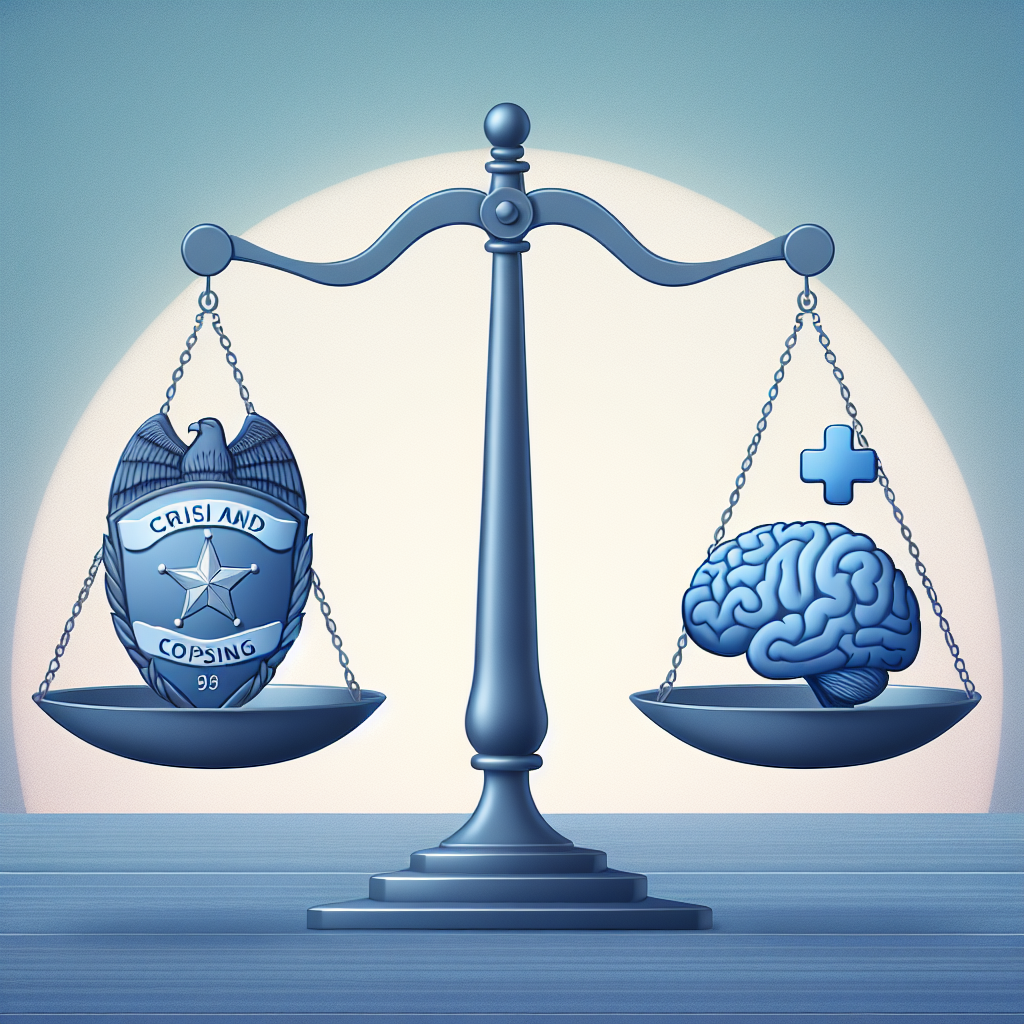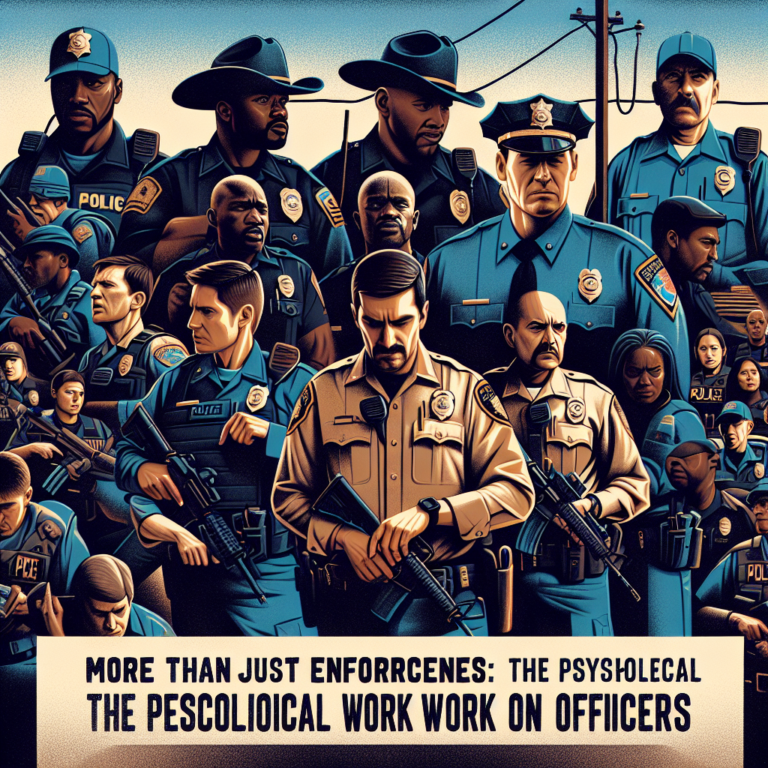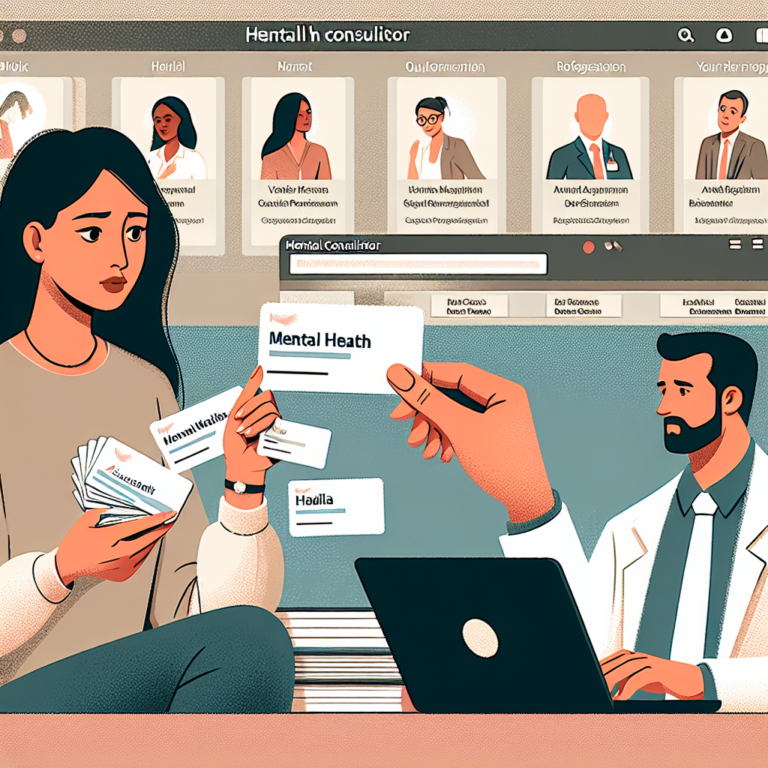
Introduction
Imagine a world where the guardians of our safety—the police officers—are battling unseen enemies. Every day, these brave individuals face high-stress situations, often dealing with trauma that leaves lasting scars on their mental health. The alarming rates of PTSD, depression, and burnout in law enforcement shine a spotlight on an often-overlooked issue: Crisis and Coping: The Importance of Psychological Support in Law Enforcement. In this piece, we’ll explore the significance of psychological support systems, real-world applications, and effective coping strategies, making a compelling case for the urgent need for enhanced mental health resources in policing.
Understanding the Crisis: The Current Climate in Law Enforcement
Mental Health Statistics in Law Enforcement
Did you know that law enforcement officers are statistically shown to have higher rates of PTSD than veterans? A staggering 30% of police officers experience symptoms of PTSD the lifetime prevalence of major depressive disorder can be as high as 12%. The ongoing exposure to traumatic incidents, such as violence, accidents, and critical incidents, creates a unique crisis that demands effective coping measures and robust psychological support systems.
| Statistic | Percentage |
|---|---|
| Officers experiencing PTSD | 30% |
| Officers with suicidal thoughts | 40% |
| Depression prevalence | 12% |
The Nature of Crisis in Law Enforcement
What constitutes a "crisis" in law enforcement? While it is easy to think of a crisis as a single dramatic event—a shooting, a violent altercation—it’s far more nuanced. The cumulative stress from daily encounters with danger, the impact of public scrutiny, and the emotional toll of making life-or-death decisions contribute to a prolonged state of crisis. This ongoing strain can compromise an officer’s cognitive function, judgement, and overall well-being.
The Importance of Psychological Support
The Role of Psychological Support Systems
In law enforcement, psychological support is not merely an accessory—it’s a fundamental need. Effective psychological support systems encompass peer support programs, counseling services, and training on coping strategies. By equipping officers with these tools, agencies can foster resilience, enhance performance, and reduce the attrition rate.
Case Study: Police Department Peer Support Program
A notable example is the Peer Support Program established in the Los Angeles Police Department (LAPD). Officers trained as peer supporters provide immediate emotional assistance to their colleagues, creating a safe space for sharing experiences without the fear of stigma. The program has resulted in reports of improved morale and reduced instances of PTSD among participating officers. This real-world application highlights the relevance of integrating psychological support into law enforcement practices and showcases its transformative potential.
The Cost of Ignoring Mental Health
When agencies prioritize bureaucracy over mental health, the consequences can be dire. A lack of psychological support can lead to poor decision-making, increased use of force, and higher rates of attrition. The tragic case of Seattle Police Department’s former officer, who took their own life as a response to untreated PTSD, underscores the critical need for accessible mental health resources within the profession, emphasizing that Crisis and Coping: The Importance of Psychological Support in Law Enforcement is indeed a lifesaving issue.
Effective Coping Strategies
Cultivating Resilience
Resilience is not just a buzzword; it’s the backbone of a strong law enforcement officer. Programs focused on resilience training teach officers to bounce back from adversity more effectively. Techniques include mindfulness, stress management workshops, and physical fitness routines. By empowering officers with these skills, they can better navigate the tumultuous waters of their profession.
Case Study: Resilience Training in Action
The Miami-Dade Police Department implemented a resilience training program that integrates physical, emotional, and mental well-being. The results have shown a decrease in officer-involved incidents and an overall improvement in job satisfaction. Participants report feeling better equipped to manage emotional stressors, aligning with the central theme of Crisis and Coping: The Importance of Psychological Support in Law Enforcement.
| Coping Strategy | Description | Impact |
|---|---|---|
| Mindfulness | Techniques to focus and relax | Decrease in stress levels |
| Peer Support Programs | Emotional assistance from colleagues | Enhanced morale |
| Professional Counseling | Licensed therapists providing support | Reduced therapy stigma |
Fostering a Supportive Culture
Establishing a supportive culture in law enforcement agencies is paramount. This includes leadership buy-in, policy changes to accommodate mental health days, and training for supervisors to recognize when their officers need help. When the culture shifts toward openness and support, officers feel safe seeking help without fear of repercussions.
Challenges to Implementing Support
Stigma Around Mental Health
One major barrier to seeking help is the stigma surrounding mental health issues. Many officers fear being labeled as weak or unfit for duty. This stigma can deter them from utilizing available resources, further perpetuating a cycle of crisis. Therefore, comprehensive education campaigns must be launched to normalize mental health discussions within law enforcement.
Financial Constraints
Budget limitations often pose a significant challenge for law enforcement agencies when implementing psychological support systems. However, investing in officers’ mental health can lead to increased productivity and reduced turnover rates, ultimately saving money in the long run.
Conclusion
The stakes have never been higher for law enforcement officers battling the invisible wounds of their profession. As we have gleaned through various case studies and statistical analyses, the theme of Crisis and Coping: The Importance of Psychological Support in Law Enforcement serves as a clarion call for immediate action. By integrating effective mental health resources, normalizing discussions around mental health, and fostering supportive environments, we can improve the well-being of our officers and, consequently, the communities they serve.
Let us advocate for the essential psychological support that can make a transformational difference in law enforcement, ensuring that our protectors are resilient, healthy, and ready to safeguard our lives.
FAQs
1. What is the importance of psychological support in law enforcement?
Psychological support is crucial for mitigating the effects of stress and trauma experienced by officers, ultimately promoting better mental health and job performance.
2. How can law enforcement agencies implement effective mental health programs?
Agencies can establish peer support systems, offer resilience training, and ensure access to professional counseling, all while fostering a supportive culture that reduces stigma.
3. What are some common mental health issues faced by police officers?
Common issues include PTSD, depression, anxiety, and substance use disorders, often stemming from the high-stress environments officers regularly navigate.
4. How does stigma affect an officer’s willingness to seek help?
Fear of being perceived as weak or unfit for duty can prevent officers from utilizing available mental health resources, exacerbating ongoing emotional crises.
5. What impact do peer support programs have?
Peer support programs can improve morale, facilitate open discussions about mental health, and decrease the prevalence of PTSD among officers, cultivating a healthier work environment.
By addressing these questions and concerns, we can move closer to ensuring that every law enforcement officer receives the psychological support they deserve, reinforcing the idea that taking care of their mental health is not merely an option—it’s a necessity.

















